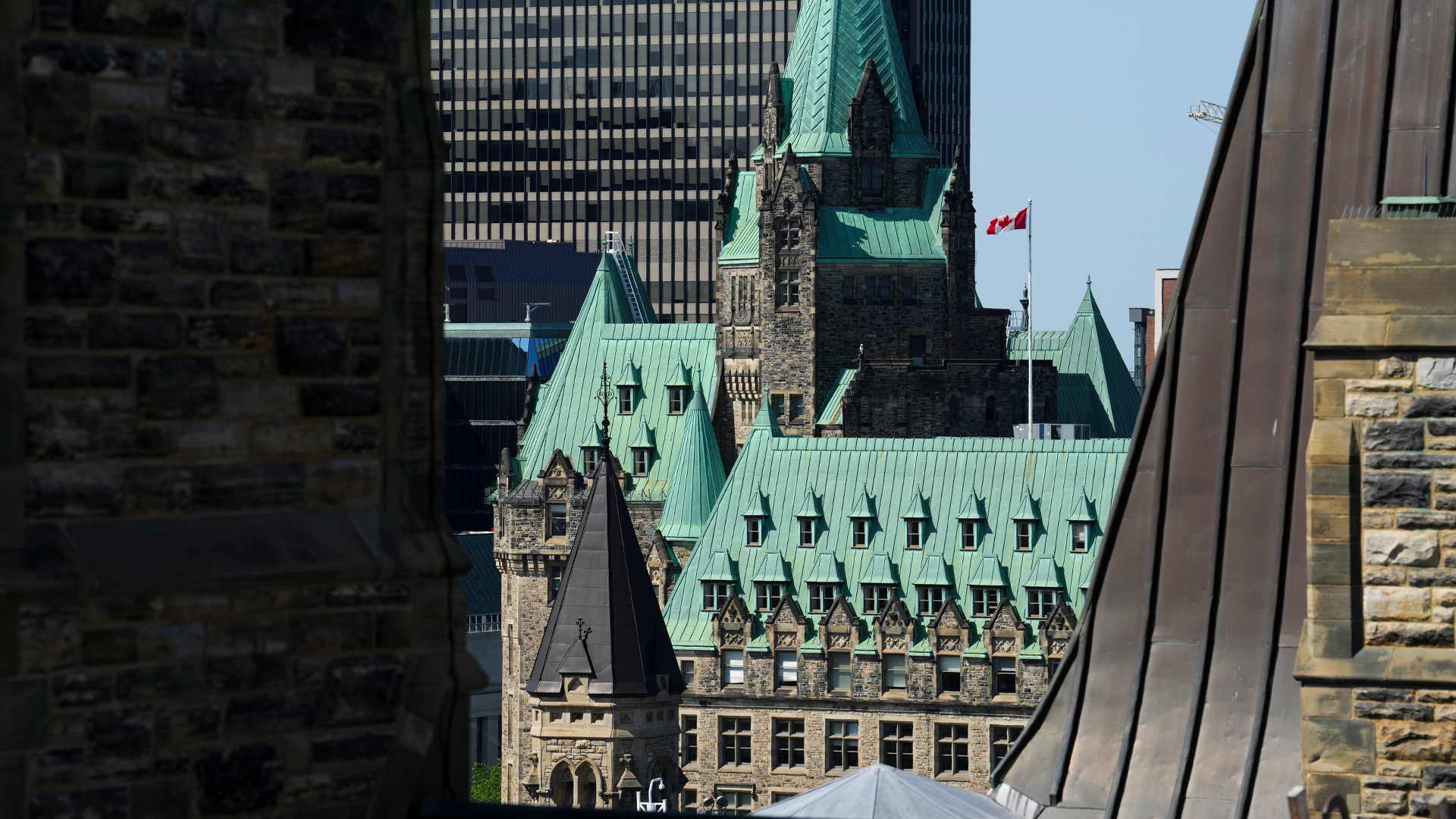The Supreme Court of Canada recently questioned the level of federal government spending within the Canadian federation. The federal attorney general’s subsequent acknowledgment of the constitutional issues – and his request that the court leave the question to another day – signals that a legal showdown may be on the horizon.
For proponents of the constitutionally enshrined autonomy of provinces and the principle of responsible government, this is a welcome development.
Spending power before the courts
During a hearing in late March concerning the constitutionality of the Impact Assessment Act, which pits the federal government against Alberta and at least six other provinces, Justice Nicholas Kasirer had questions about a specific provision in the law that refers to the “federal spending power.”
The judge homed in on constitutional considerations and indicated to the federal attorney general that the court had to concern itself with “how expansive” that power might be because “there are debates as to the extent of the federal spending power.”
Counsel for the attorney general conceded that “it likely would have to be determined on the particular facts of the case” whether federal authority to spend was “constitutionally allocated or not.” For the purposes of that case, he indicated that it was safe to say in general that “federal agencies or federal bodies would have power to spend within their mandate.”
The exchange did not come from out of left field. Increasingly, provincial premiers have challenged the ways in which the federal government wields this power when funding things such as health care, housing or highway construction.
It is, therefore, unsurprising that these legal questions would come from a jurist from Quebec, where the federal spending power has been the subject of sustained discussions and where the official provincial position remains that such a power, particularly with respect to conditional funding, does not exist as a matter of constitutional law.
The constitutional debate remains unresolved
It is undisputed that if one order of government has jurisdiction over a certain area or service, it is allowed to spend money on it. But even this general rule is subject to exceptions. For instance, as the Supreme Court recently affirmed emphatically, federal jurisdiction over criminal law is only prohibitory. In other words, Parliament can decriminalize something. However, it cannot unilaterally take the next step and legalize it.
The debate is therefore about one order of government spending funds in an area in which it has no corresponding legislative authority to regulate. This frequently happens, either by providing funding directly to an individual or to a government entity. Ultimately, the expression “federal spending power” normally refers to the authority to spend in fields of provincial jurisdiction.
A wide range of arguments have been put forward about its place in our constitutional scheme. Some have argued that because the power is not defined in the Constitution, any and all spending in areas of provincial jurisdiction is simply unconstitutional. This viewpoint is supported insofar as the appropriation of funds requires legislative action, and it has been held that “neither level of government has the power to legislate in respect of matters that fall within the exclusive competence of the other.” The same rule applies to executive action.
A related view holds that while the federal government can authorize the transfer or withdrawal of its funds to provincial governments, it cannot attach conditions in doing so. To do so would be to effectively regulate the area in question, and the Supreme Court has made it clear that one government cannot “do indirectly what it could not do directly.” These positions have been supported by many, notably former Supreme Court justice Jean Beetz and the late former prime minister Pierre Trudeau when they were both constitutional law scholars in Quebec. There are also positions that would permit some conditions but not others.
Finally, some have suggested that there should be no limits on federal spending in areas of provincial jurisdiction, which is the least convincing argument from a constitutional perspective. For these scholars, because the provinces technically remain free to pursue a course of action inconsistent with any conditions or refuse to accept such funding, there is no constitutional concern.
More clarity could be coming at long last
The U.K. Judicial Committee of the Privy Council, Canada’s highest court until 1949, effectively held that such a power does not exist. That case has never been overturned and continues to be cited by courts, including the Supreme Court.
However, since 1989, the Supreme Court has mentioned this power a few times in decisions that were not contingent upon it. These incidental comments are not legally binding, the Université de Montréal’s Andrée Lajoie has explained, though they implicitly suggest that the federal spending power is constitutionally permissible in some form. In the first modern case to mention this power, it cited another former Supreme Court judge and added an important caveat by suggesting that “the federal spending power can be exercised so long as it is not in substance legislation on a provincial matter.”
Put together, this may lead to the conclusion that transferring federal funds directly to the provinces without conditions or without certain conditions is constitutionally permissible. However, to add to the uncertainty, the Supreme Court has expressly declined to resolve debates about the precise limits of Ottawa’s spending power in some cases, choosing instead to leave any pronouncement to another day when it is raised more directly as a question of law.
The framing of the federal government’s spending power has important implications for provincial autonomy and democratic accountability, two fundamental principles of Canada’s Constitution. Indeed, given the fiscal imbalance in the federation, federal spending in areas of provincial jurisdiction can impact Canadian federalism and effectively distort the constitutional division of powers.
To change the trajectory of federal spending, start big and follow the money
New approach needed for reviewing government spending post-pandemic
In other words, entirely unconstrained spending in areas of provincial jurisdiction can transform the Canadian constitutional structure without a constitutional amendment. It can deprive the provinces of their constitutionally guaranteed autonomy and blur the lines of accountability that underlie our federal system in important ways. It can also hinder the policy diversity and attention to regional sensitivities that federalism is designed to preserve and that the Supreme Court itself has said must be protected. Indeed, the court has recently reemphasized this point in relation to health care, for example.
Consistent with this admonition, the court has affirmed the basic principle that “the orders of government are coordinate and not subordinate one to the other.” It is difficult to square entirely unconstrained federal spending in areas of provincial jurisdiction with these binding authorities.
Accordingly, recent indications suggest that greater clarity surrounding the federal spending power and its place within the constitutional order is forthcoming. The court could discuss the issue in the Impact Assessment Act case, or it may accept the federal attorney general’s concession and leave the issue to be decided on a case-by-case basis as it arises more directly. Whatever it chooses to do, Canadian federalism will be affected through a tangible impact on the way federal spending power is exercised going forward.











